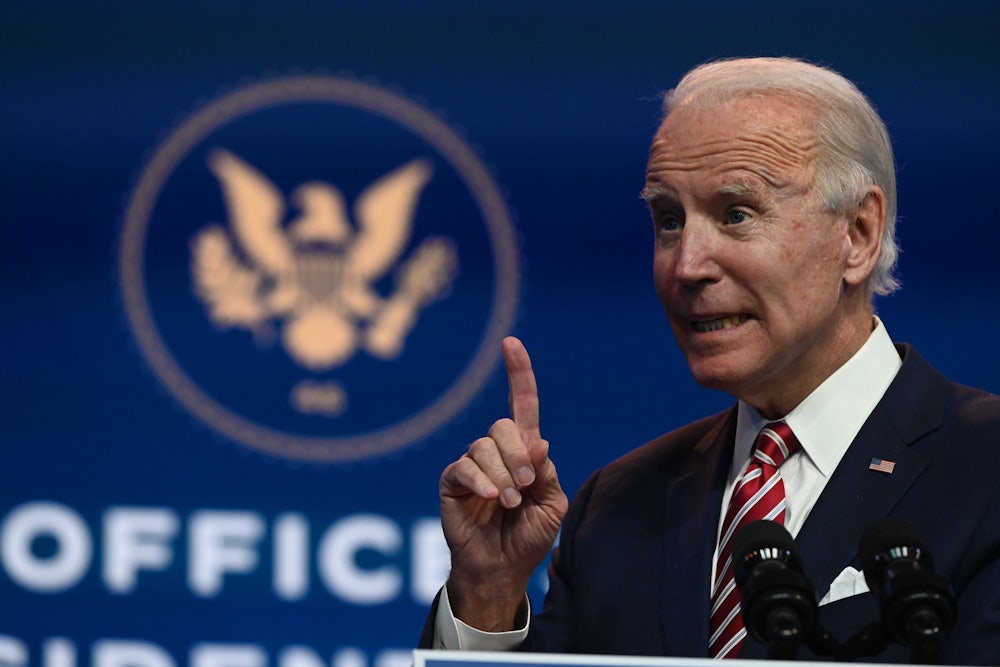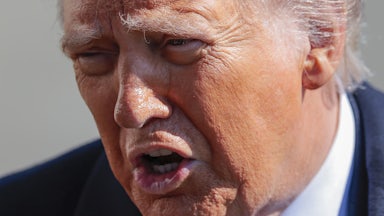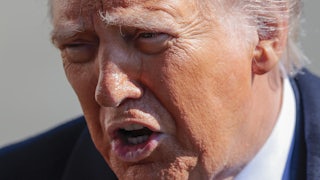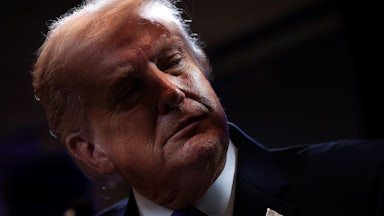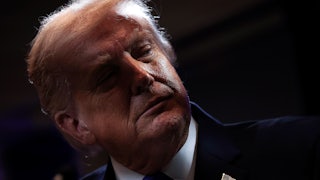On Monday, the Biden administration unveiled an unofficial slogan for its first 50-odd days: “100 million shots in arms and 100 million checks in pockets,” tweeted Chief of Staff Ron Klain. It’s not especially pithy—“jabs” would have worked better, in spite of its Britishness—but it gets the message across. Biden was elected to end the pandemic and rebuild the economy. In two months, the administration has made extraordinary progress on both fronts.
Many in the press, however, are fixated on a different number: zero. That’s the number of press conferences Biden has held since the inauguration. “At this point in office, Trump had given five news conferences. Obama had given two, George W. Bush three and Clinton five,” observed The Washington Post’s Paul Farhi over the weekend. CNN noted that Biden is trailing the last 15 presidents on this score—sounds bad! “It’s long past time for Biden to answer questions from the White House press corps in a sustained solo news conference,” Chris Cillizza argued. The editorial board of The Washington Post wrote more or less the exact same thing. ABC headlined a piece: “Biden not yet holding a news conference raises accountability questions,” while Fox News has, unsurprisingly, started treating the absence of press conferences as an all-out scandal, complete with its own special ticker.
But Biden’s critics have struggled to articulate what, exactly, the public is missing. The conservative media has suggested that Biden is too afraid to answer questions about the pressing issues that have dominated Fox News, like the availability of obscure Dr. Seuss books. In the mainstream press, the criticism is both more measured and more legitimate, but it’s still not particularly compelling. “Press conferences are critical to informing the American people and holding an administration accountable to the public,” said Zeke Miller, president of the White House Correspondents’ Association.
There is some substance to the “accountability” argument, but it’s not quite clear what accountability means to the current White House press corps beyond an idealized version of these press conferences. Trump’s lie-filled extravaganzas both revealed information crucial to voters (that he believed bleach could be ingested to kill the coronavirus, for example) and poisoned the media bloodstream with disinformation. A new, quieter president requires a recalibration of what we can really expect from the White House press conference, other than forcing Biden to respond to partisan talking points manufactured by the bad-faith actors in the Republican Party and their allies in the conservative media-entertainment complex.
The high marks the administration has received up to this point from the media may ironically be contributing to the president’s reticence to speak to the press. The administration’s tone, its early economic and public health successes, and its message discipline have all received glowing coverage. The president’s Thursday primetime address last week received rave reviews. Biden has little to gain politically from these unscripted encounters and, being famously gaffe-prone, a fair amount to lose.
Demands for “accountability” in this context seem a bit hollow. Press Secretary Jen Psaki’s televised briefings, which unlike those of her immediate predecessors have not been wholly defined by their falsehoods and evasions, have rarely made news and there’s no reason to believe that White House reporters aren’t asking her the same types of questions they would ask the president. (And if those briefings are any indication, the public isn’t missing much.) Biden and his administration have been pressed repeatedly on deadlines for vaccinations and a “return to normal.” But if every adult who wants a vaccination isn’t eligible to receive one by May and if small gatherings aren’t considered safe by this summer—the dates Biden himself gave in his primetime address—then the administration will be judged accordingly.
Many in the press have also been eager to press Biden about Andrew Cuomo, the embattled New York governor. If Biden were to distance himself from Cuomo—something he has not done so far in brief comments—that would certainly be news. But it’s hard to see how this issue involves holding the administration accountable.
There are certainly questions that are worth the public’s time. The biggest failure of the administration thus far has been its cowardly refusal to hold Mohammed bin Salman to account for the murder of Jamal Khashoggi, and Biden should explain the administration’s thinking on the subject. Biden should explain how he plans to raise the federal minimum wage, as he has promised to do. But one can also easily imagine the other types of questions Biden would get: about Mr. and Mrs. Potato Head, his dog Major, and cancel culture. Rather than holding Biden “accountable,” the most likely outcome is what we usually get from press briefings: nothing much of substance.
Ultimately, Biden has said that he will hold a press conference some time this month. The White House press corps will get its chance to question him. In the meantime, his administration so far has not behaved in a way that suggests it is hiding from the press or lying to the American public—and certainly not to the degree that we saw in the last administration, which the media seems to have forgotten was in power just a few short months ago. What all this hand-wringing about Biden’s press conferences says to the public is that he is uniquely antagonistic toward journalism and transparency—a galling suggestion, given what we have just experienced.
